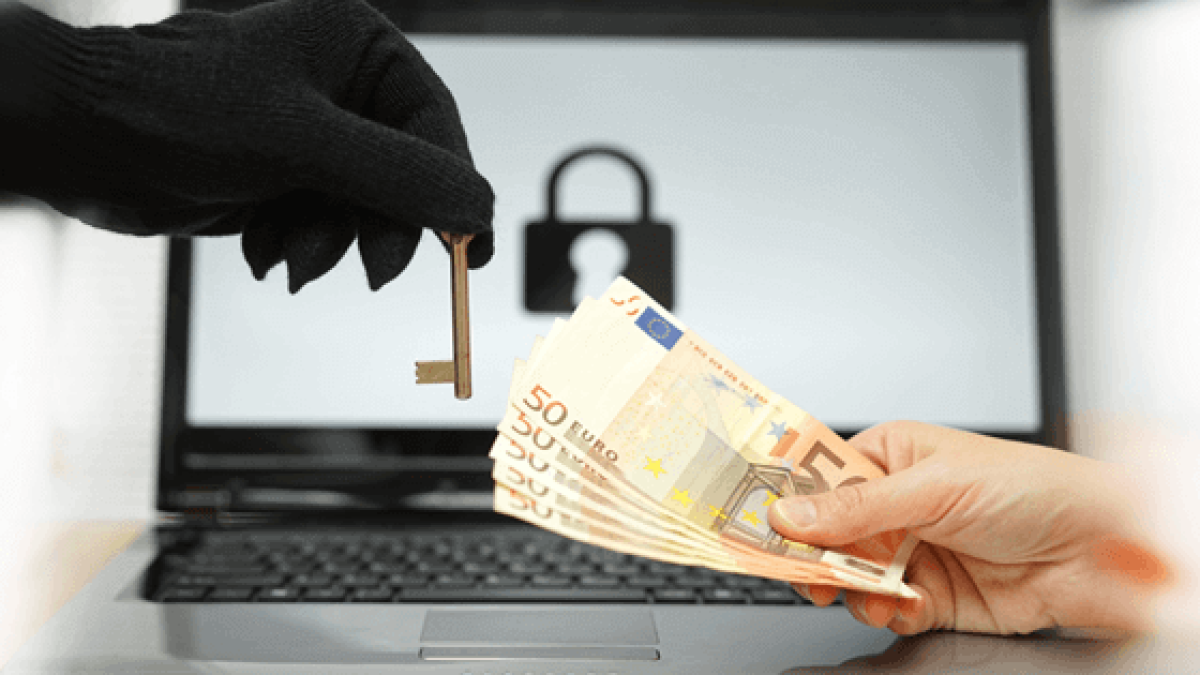Ransomware attacks have emerged as one of the most pressing cybersecurity threats for businesses, critical infrastructure, and national security. High-profile incidents over recent years have demonstrated the devastating consequences these attacks can have on operations, reputations, and finances. Healthcare organizations, in particular, have been frequent targets, with notable cases affecting institutions such as UnitedHealth, CDK Global, and the UK Ministry of Defence. These attacks have disrupted essential services, delayed medical appointments, and even threatened blood supply chains, highlighting the stakes involved.
In 2023 alone, cybercriminal gangs extorted approximately $1.1 billion from victims, with nearly three-quarters of attacks resulting in payouts exceeding $1 million. Compared to a decade ago, these figures represent a dramatic escalation in both frequency and financial impact. Yet, even when organizations refuse to pay, the consequences can still be severe. MGM Resorts, for example, suffered significant losses without paying ransom, illustrating that ransomware attacks inflict economic damage regardless of payment decisions.
The ransomware ecosystem has evolved into a shadowy, high-value economy worth an estimated $42 billion annually. This underground market affects organizations of all sizes, including small businesses, hospitals, and government departments. The ethical and practical dilemma of paying ransom has become a central debate in cybersecurity policy.
The Debate Over Paying Ransom
Brett Callow, managing director at FTI Consulting, warns organizations about the reputational risks tied to ransom payments. If a company pays a ransom, it may be perceived as underprepared or lacking a robust disaster recovery plan. Conversely, choosing not to pay can result in prolonged operational outages, financial losses, and public scrutiny. The decision is far from straightforward and carries significant moral and strategic weight.
Former GCHQ chief executive Ciaran Martin has called for a ban on ransomware payments, arguing that such payments incentivize attacks and reward criminal behavior. The proposal has gained support in media outlets like The Times, echoing earlier measures against funding terrorism in the al-Qaeda era. Governments worldwide are exploring similar approaches, with partial bans implemented in U.S. states like North Carolina and Florida, and proposed legislation in New York aimed at extending restrictions to private companies. In the UK, the government is consulting on a potential legal overhaul, while Australia considered a ban following the Medibank data breach. Despite growing interest, a comprehensive global ban remains elusive.
Challenges in Implementing a Ransomware Payment Ban
While proponents argue that banning ransom payments could curb attacks, critics warn that enforcement may be difficult and potentially counterproductive. Tom Ricketts, managing director at Aon, notes that such bans are unlikely to succeed in the near term. One major challenge is the underreporting of ransomware incidents; estimates suggest that 700% of ransomware attacks go unreported, making regulatory oversight complex.
A ban could also drive the ransomware economy further underground, complicating financial transparency and risk management for companies. For organizations with inadequate cyber resilience, such a ban could have catastrophic consequences, particularly for critical infrastructure like hospitals and emergency services. Data from backup solutions provider Datto indicates that three-quarters of businesses believe a ransomware attack could threaten their survival. Prohibiting ransom payments could therefore dramatically increase operational and financial risks.
Evidence from North Carolina and Florida suggests that bans alone may not deter cybercriminals. Jen Ellis, co-chair of the Institute for Security and Technology’s Ransomware Task Force (RTF), warns that criminal organizations can adapt quickly, seeking alternative revenue streams or shifting their operations to other jurisdictions. Cybercriminals often target organizations with weak cybersecurity protocols, low resilience, and high dependence on data access, making them more likely to pay ransoms if given the opportunity.
Strategies for Combating Ransomware
Given the challenges of enforcing a ban, experts emphasize the importance of proactive measures to reduce vulnerability. The RTF recommends strategies such as strengthening international law enforcement partnerships, holding cryptocurrency exchanges accountable for illicit transactions, and creating funds to assist victims of ransomware attacks.
Preparedness is a central theme in ransomware mitigation. Ellis advocates for companies to develop resilience plans alongside any potential bans, focusing on the root causes of cyber vulnerabilities, such as cost constraints, technical complexity, and employee awareness. By understanding the operational and financial impact of ransomware, organizations can implement effective policies and incident response protocols.
Moore, another cybersecurity expert, highlights the role of regular audits and penetration testing. Many companies delay these activities due to resource constraints, leaving gaps in security. Cyber insurance providers can help enforce preventive measures by making security audits a requirement for coverage. Although insurers could cover ransom payments, stricter standards and regular testing may significantly reduce the frequency and impact of attacks.
Ethical, Practical, and Policy Considerations
Even if a ban were theoretically feasible, experts caution that its implementation raises significant ethical and practical questions. For instance, should companies be legally prohibited from paying a ransom even when patient lives or critical infrastructure are at risk? How would regulators handle non-compliance, particularly in life-and-death situations?
Ellis and Moore stress that bans should not be viewed as standalone solutions. They argue that effective cybersecurity policies must combine regulatory frameworks, technological safeguards, and financial support for organizations to recover from attacks. Without a holistic approach, bans could inadvertently harm businesses, healthcare providers, and the general public.
Ricketts notes that the likelihood of a blanket ransomware payment ban is extremely low. He suggests that regulators may lack the political will to enforce such measures, particularly when they risk severe consequences for taxpayers and corporate operations. The debate underscores a fundamental tension between cybersecurity enforcement, ethical responsibility, and practical feasibility.
Looking Ahead: Building Cyber Resilience
The ransomware landscape continues to evolve, and stakeholders recognize that a purely punitive approach may be insufficient. Instead, momentum is building toward comprehensive resilience measures that combine preventive security, robust backup systems, and rapid incident response. Governments, private companies, and insurance providers all have roles to play in this ecosystem.
While discussions around bans on ransom payments have stalled in recent years, experts agree that the underlying problem—vulnerable digital systems and inadequate preparedness—remains pressing. A balanced approach, integrating regulatory oversight, public-private collaboration, and enhanced cybersecurity infrastructure, offers the most promising path forward.
Organizations that invest in proactive security measures, employee training, and resilience planning will be better positioned to navigate the complex ransomware threat landscape. Meanwhile, policymakers and regulators must weigh the ethical and practical implications of banning payments while fostering an environment that discourages criminal activity without endangering essential services.




